Eating a steak lunch with a butcher is a bit like attending a movie with a film critic – they’re bound to have a more informed view of the matter than you.
And Senator Susan McDonald, former chief executive of Super Butcher, knows her steak, all the way from paddock to plate.
She’s ordered a fine piece of Porterhouse, (rare) chips and vegetables and she’s not two mouthfuls in before she gives a thumbs up to the chefs at the Breakfast Creek Hotel’s Spanish Garden restaurant.
“Beautiful, perfect!’’ she declares.
“Look, you don’t even have to write a story if you don’t want to, my day is not wasted, this is just the perfect lunch for me.’’
Steak, in a not-so-roundabout way, is the reason this Townsville-based senator decided to get into politics in the first place.
Hugely successful in business, she didn’t really need a new career in politics in Canberra where she arrived in 2019 as a newly minted LNP Senator.
She could have chosen a life of leisure.
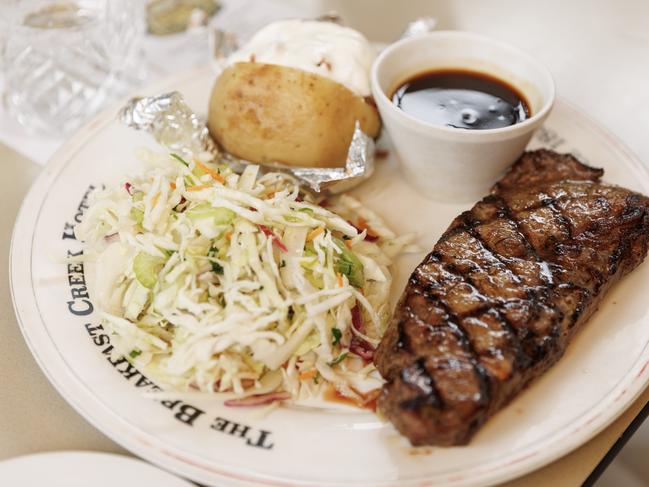
Thankfully, we don’t have aristocrats in Australia yet, if we did, Senator McDonald would have to be among their ranks.
The family presence in Australia goes back nearly two centuries. Her dad, Don McDonald, served as state and federal president of the National Party during the 1990s and the family company, MDH Pty Ltd, is one of Australia’s largest beef operations running around 150,000 head of cattle across 14 properties covering a land mass close to the size of Belgium and the product of seven generations of McDonald family involvement in Australian agriculture.
Just to add to the family’s already sound financial credentials, Senator McDonald also helped build a hugely successful small business in the form of Super Butcher which she took over after the death of the former CEO, her brother Zanda, in 2013.
Taking responsibility for over 100 staff across five stores opened her eyes to both the joys and the travails of those people who provide the key plank in the national economy.
Those engaged in representative politics who have not run a small business are at a serious disadvantage to those who have, she believes.
“If you haven’t run a small business I don’t think you have had the joy of the wins and the heartache of the losses, the potential of losing your house, of finding you have to pay your staff before you pay yourself, you know, that sense of responsibility for something bigger than yourself,’’ she says.
Yet, even in the midst of her success, she grew increasingly disturbed watching the northern half of Australia where she grew up (and where much of our food is produced) marginalised, and perhaps even ignored, by successive governments.
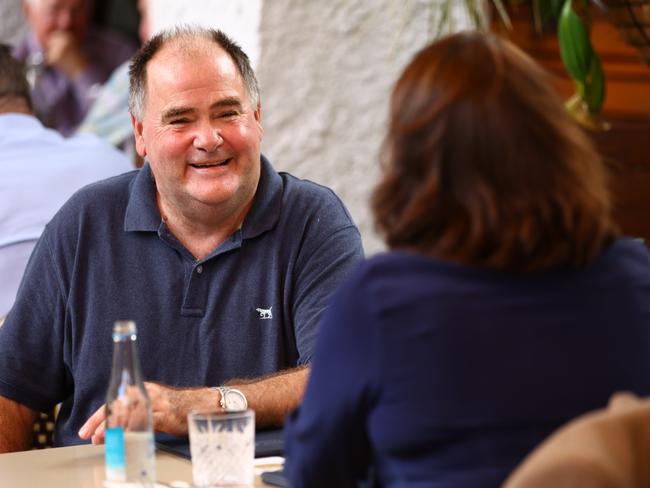
Her unabashed romanticism about Queensland’s northwest, clearly her spiritual home, was evident in her Maiden Speech in 2019:
“I am from the big country,’’ she told federal parliament.
“I’m a Cloncurry woman. I’m moulded from the red dirt of northwest Queensland. The minerals run in my veins and the blue sky fills my eyes.’’
Taking the view that someone had to stand up and give voice to the big country she loves, she decided that someone might as well be her, and now that she is inside the tent, agriculture is a primary focus.
“Food production is simply the most important thing that happens in this world,’’ she says.
“Everything else may be important, but without food we don’t survive.
“We need good quality food, food that is nutritious and allows the brain and the body to grow.’’
That frisson of panic which creeps through a community when the shelves of supermarkets become sparse, as it did just a few years ago in the early days of Covid, puts everything into perspective, she says.
Sri Lanka experienced it more recently when a push to use only organic fertiliser resulted in crop failure.
“Once people start going hungry, they get very focused.’’
It was not so much the hands-on nature of food production as the business side of the equation which first attracted her attention in her early years on isolated Devoncourt Station outside Cloncurry
There were a few jillaroos alongside the jackaroos in the 1970s, but cattle production was essentially a man’s affair.
While her mum tried to keep her and her two brothers concentrating on their School of the Air lessons, country kids like the Senator and her two brothers, James and Zanda, are often restless to escape the house and get out on the property.
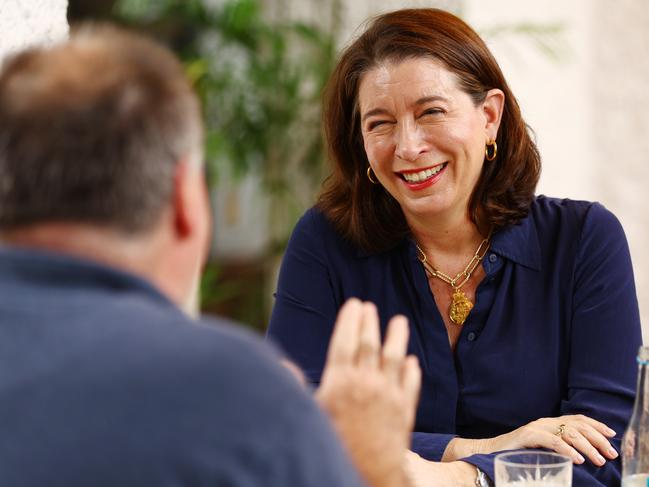
“We would take every opportunity to get out of school – somebody would come to the door or the phone would ring and my brothers and I, we would just disappear.’’
Yet she also found she had an affinity with bookkeeping in what was essentially a large small business.
By grade eight, when she went to Stuartholme as a boarder in Brisbane, the team sports and the intrigues of adolescent life left her a little bewildered, but not the business studies.
“It was a great school and I loved my time there,’’ she says.
“I turned up and I found I had a terrific education with distance education.
“But I had no idea how to play team sports or, you know, the social argy bargy of the classroom.
“That was all new to me.’’
What wasn’t new was bookkeeping and it led to an accountancy and economics degree at The University of Queensland where she also joined the Toowong branch of the Young Nationals, mostly for the social life it offered.
After running a small business and marriage and three kids, she was ready for a challenge in Canberra and, among other positions, was assigned the job of “Special Envoy for Northern Australia’’ in the last year of the Morrison administration.
That appointment followed on from the Abbott Government’s release of the first ever White Paper on developing northern Australia which included all sorts of promising goodies for the north including an examination of new dam sites along with new beef roads and updated air strips.
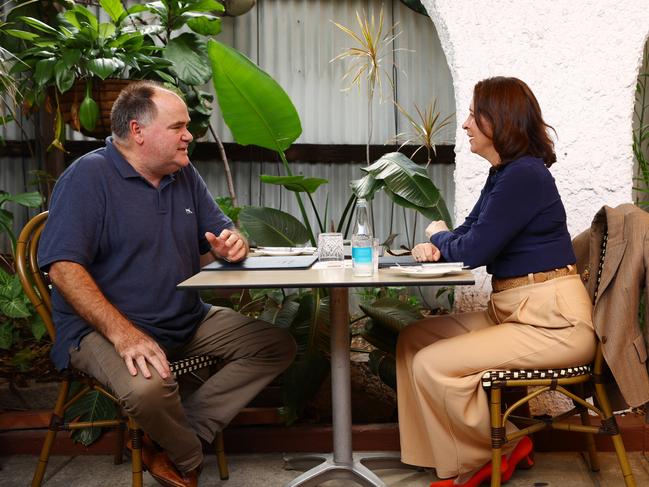
Nearly a decade has passed since the release of that White Paper, and many northerners might be pondering when exactly all this new infrastructure is arriving.
But Senator McDonald still believes there is a political will to develop the north which is not only rich in potential mineral and agricultural resources, but has that close proximity to Asian markets.
She remains positive that good things are coming, not only for the north but for Australia generally, provided we continue to grow and develop with an eye on preserving both our first world lifestyle, and our environment.
The notion of an impending apocalypse because of global warming is not something she buys into.
In her lifetime an impending apocalypse was always around the corner, from a nuclear winter to chronic pollution to a looming ice age to the depletion of the ozone layer to a “population explosion’’ in which the world was alleged to be breeding itself into extinction.
“It’s like scary movies, we love being frightened,’’ she says.
“Yet look at something like air pollution in our cities in the 60s – we invented technology to tidy up cities, to clean the fuel and the air and the rivers.
“I do genuinely believe that human beings are creative, inventive and resourceful, and can identify and solve the problems we are faced with.’’
Meal finished, Senator McDonald declares it a perfect ten out of ten as a staff member comes over to fuss over the MP.
All this attention has nothing to do with her role as an elected representative, but stems from the senator’s celebrated role in the Queensland beef industry and her long association with the Brekky Creek pub.
“Is she a politician now?’’ the staff member asks, somewhat taken aback.
”Well … she was always lovely.’’

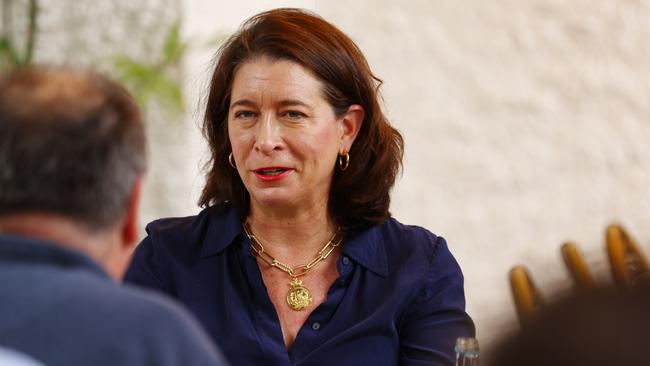
Add your comment to this story
To join the conversation, please log in. Don't have an account? Register
Join the conversation, you are commenting as Logout
Editor’s view: Brisbane has waited long enough for inner-city arena
Queenslanders will know within days the full plan for Brisbane 2032 venues. If an inner-city arena is not included, the state government must have a plan to ensure one gets built anyway.
We’ve wasted four years on dumb Games ideas. Labor should be ashamed
Annastacia Palaszczuk should hang her head in shame for all of the time her short-sighted government wasted, squandering opportunities for Brisbane 2032, writes Kylie Lang.